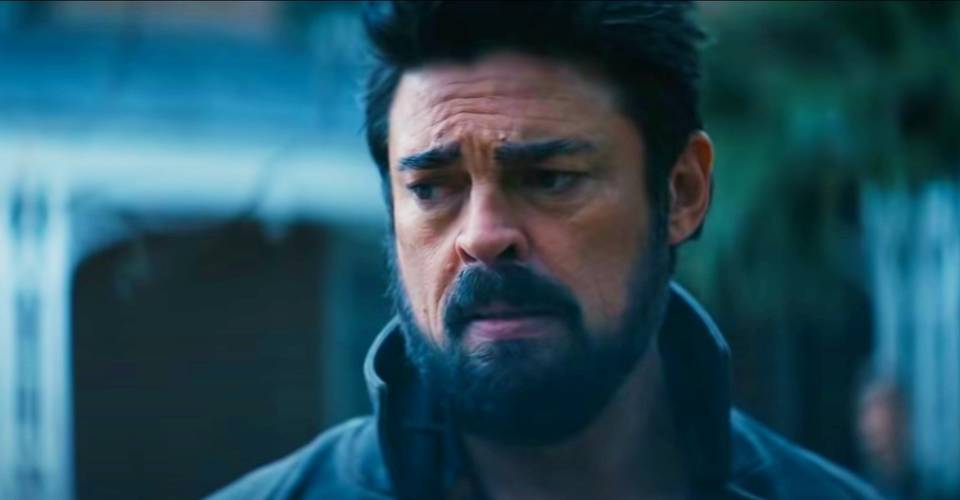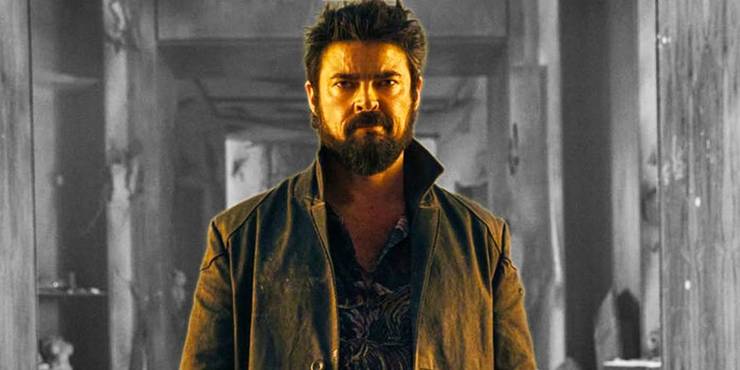Billy Butcher walks the line between antihero and villain but The Boys season 3 confirms that it is finally time to hate him. While he may be an antihero, he isn’t a sheep in wolf’s clothing, like the case with many misunderstood antihero characters. Butcher (Karl Urban) is inhumane, but he is often paired against the Supes who are committing horrendous acts. But just because Butcher’s actions aren’t as monstrous as Homelander’s, doesn’t mean he isn’t a monster who deserves to be treated as such.
Season 3 depicts Billy Butcher and Hughie taking a Temp V to get powers. While season 2 centers around Hughie’s hatred for Butcher, The Boys season 3 brings the two closer together. After learning that Temp V causes deadly side effects, Butcher still recruits Hughie for his plan. When he decides to spare Hughie and go by himself, Hughie is grateful when he should’ve been angry at Butcher’s decision to sacrifice him without his consent.
Hughie’s rejection of Butcher is essential in maintaining the core themes of The Boys. This is demonstrated in the season 1 finale where Hughie decides to save A-Train instead of letting him die. While Butcher kidnaps and straps a bomb to Stillwell, he proves he will stop at nothing to kill Homelander. The Boys’ core theme points out that revenge doesn’t solve anything; it will not bring back what has been lost and it just adds to the violence and destruction in a corrupt world. While Mother’s Milk, Frenchie, and Kimiko may all reject Butcher’s antics, Hughie is the show’s protagonist, the audience’s vessel who reacts to Vought’s craziness as a normal person would. Hughie’s acceptance of Butcher goes against the show’s theme outlined at the end of season 1. When Butcher decides to take Temp V alone, Hughie cries out that Butcher saved him. This is not only unrealistic, but it further forgives Butcher’s monstrous actions. There’s no question that he’s now become a villain.
Why Butcher Can’t Escape Punishment In The Boys Season 4
The Boys season 3, episode 8 sets up Butcher’s dark and tragic ending and reveals that he is dying from Temp V abuse. After Starlight tells Butcher that three doses can end in death, he continues to use the experimental drug to even the playing field between himself and the Supes. Since he suffers from immense guilt over his brother Lenny’s suicide and his wife Becca’s death, he doesn’t care what happens to him. Butcher will always seek revenge first, and he doesn’t care who he hurts in the process as he already views himself as a monster. It is fitting that Butcher would hurt himself in the end, as this is not only what Butcher expects, but what the show needs.
It becomes clear in The Boys season 3 that Billy Butcher is the show’s true villain. While the parallels between Homelander and Butcher are subtle in the first two seasons, the comparisons are much more apparent in season 3. Butcher may be incapable of realizing how pointless his quest for revenge is, but that doesn’t mean he deserves sympathy. Butcher is not a hero because he decides to spare Hughie at the last minute; he’s a monster for considering sacrificing Hughie’s life. The Boys may be violent, but ultimately it shows the meaninglessness of violence and revenge while promoting a very strong undercurrent of love, forgiveness, and acceptance. However, this message will not be clear until Butcher gets his due.

